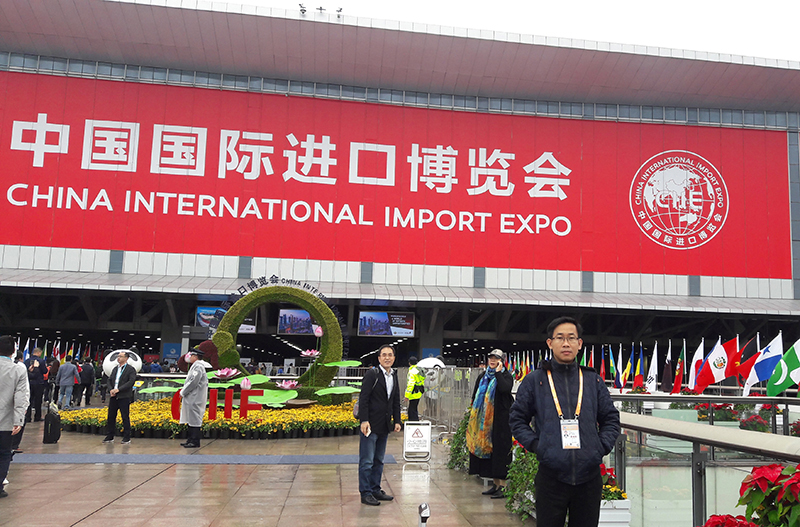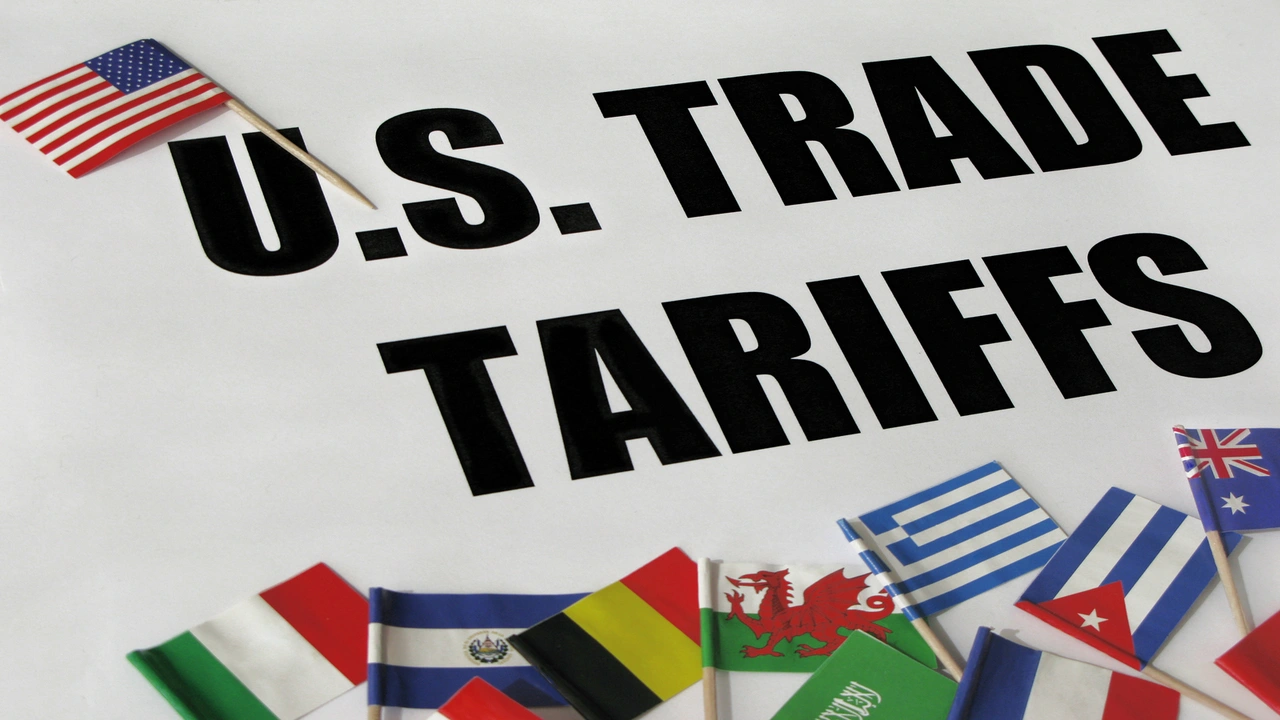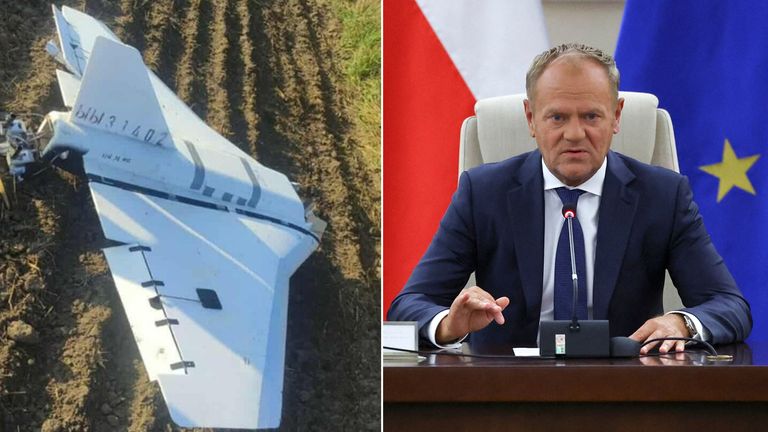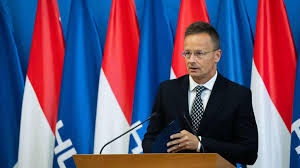Hand-painted mandalas, ornaments widely used in Nepalese art, hung on the walls of a booth at the ongoing China International Import Expo (CIIE) in east China’s Shanghai, shimmering in gold and sapphire hues.
“This is our first time participating in this exhibition,” said Rabindra Kumar Shrestha, owner of a Nepalese family business named Masterpiece Handicraft. “China is a huge market, and for us, coming from a developing country like Nepal, it’s important to be here.”
This story resonates with many exhibitors from Global South countries seeking greater opportunities in China’s expanding import market via the CIIE, which runs from Nov. 5 to 10 this year in Shanghai.
EXPANDING PRESENCE
This year, the expo features a stronger presence in terms of developing economies, with a dedicated exhibition area for products from the least developed countries (LDCs) set up for the first time and expanded booths for African and Asian exhibitors.
Over 160 companies from 37 LDCs are participating, while the number of African enterprises has surged by 80 percent from last year.
This initiative aims to help enterprises and products from the LDCs and African countries fully leverage zero-tariff policies and tap into the vast Chinese market, said Song Shangzhe, deputy director-general of the CIIE Bureau, at a parallel session of the eighth Hongqiao International Economic Forum (HQF) held in tandem with the CIIE.
Industry insiders say this comprehensive zero-tariff scheme, the first of its kind among major economies, demonstrates China’s commitment to inclusive and shared development.
“China’s new zero-tariff policy for African agricultural products comes at a timely moment,” Andrew Robertson, head of business enablement and operations of Standard Bank, told Xinhua.
Standard Bank, a leading African financial organization, has brought over 20 African agricultural producers to this year’s CIIE, showcasing cashew nuts, wine, coffee, sesame, meat and a variety of fruits.
“The measure, together with platforms like the CIIE, will significantly enhance the competitiveness of African goods in the Chinese market and help local producers seize new opportunities,” Robertson said. “That is not only welcome, but also farsighted on the part of China.”
Marina Fonseca, international marketing coordinator of Minerva, a leading Brazilian meat producer and exporter, said the CIIE serves as “an essential platform to stay close to clients, understand their evolving needs, and explore new business opportunities.” The company has participated in the expo for eight consecutive years.
Now in its eighth year, the CIIE has brought tangible benefits to enterprises from the Global South. Over the past seven editions, the expo has generated intended deals worth 4.18 billion U.S. dollars for LDCs and 5.14 billion dollars for landlocked developing countries.
AGRICULTURAL SUSTAINABILITY
Building on the trade momentum of the CIIE, agricultural cooperation has emerged as a key focus for China and its Global South partners, especially amid mounting challenges to global food security. Experts warn that the foundation of the world’s food systems is “increasingly fragile,” as nearly 700 million people worldwide faced hunger last year.
“Agriculture is a cornerstone of economic and social development for Global South countries,” said Piao Shilong, an academician of the Chinese Academy of Sciences and vice president of Peking University. “Strengthening agricultural cooperation is both China’s responsibility under the Global Development Initiative and essential for promoting shared prosperity.”
Rwanda has benefited from such collaboration. Michelle Umurungi, chief investment officer of Rwanda Development Board, said China plays a pivotal role in technology sharing, technical exchanges and market access.
“Our coffee products are particularly popular among Chinese consumers,” Umurungi said, noting that agricultural trade has brought vitality and economic prosperity to both sides.
Bai Lianyang, an academician of the Chinese Academy of Engineering, said that agricultural cooperation among the Global South countries has entered a new stage of “technology sharing plus industry collaboration” — highlighting the need to cultivate local talent alongside technology transfer.
MORE INCLUSIVE
Experts and officials stressed that advancing an open, inclusive and sustainable trade system has become increasingly critical for Global South countries amid multiple challenges.
“Rising trade and investment protectionism is undermining the industrialization of developing countries and their integration into global value chains,” said Shu Luomei, an official of the United Nations Industrial Development Organization, emphasizing that pressures on sustainable development goals make multilateralism and international cooperation more important than ever.
The World Openness Report 2025, released on Wednesday at the HQF, highlighted that emerging markets and developing economies are accelerating their openness, deepening South-South cooperation, and promoting inclusive globalization to inject new momentum into global development.
“While technological innovation is accelerating worldwide, sharing and application of technology remain uneven,” Shu said, adding that supporting industrialization in the Global South will significantly advance inclusive and sustainable globalization.
Data flows, green electricity and value chains in production and supply are converging across the Global South, driving industrialization toward a shared, low-carbon and interconnected path, said Liao Fan, director of the Institute of World Economics and Politics under the Chinese Academy of Social Sciences.
“Openness is the viable path to shared development, and cooperation is the fundamental guarantee for achieving common goals,” Shu added. Enditem
Source: Xinhua
Share Us



